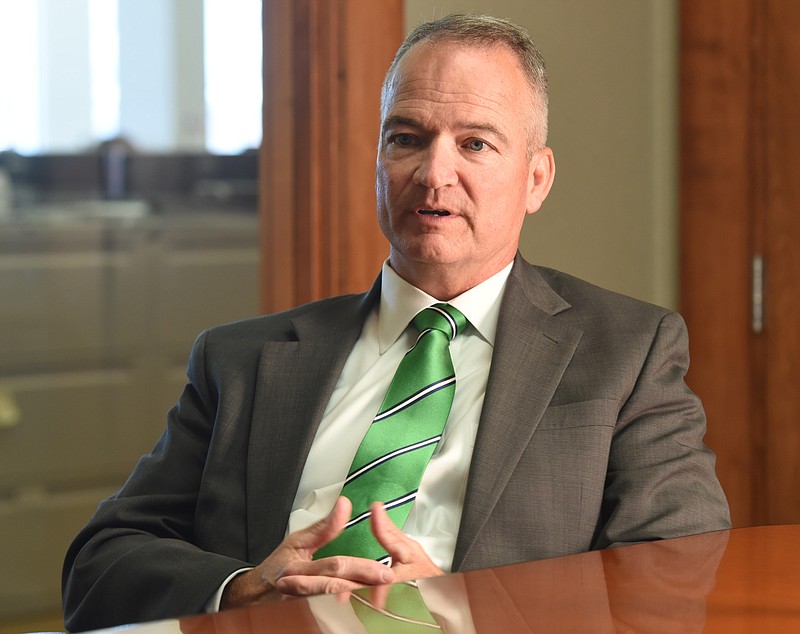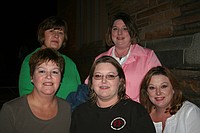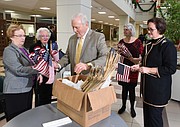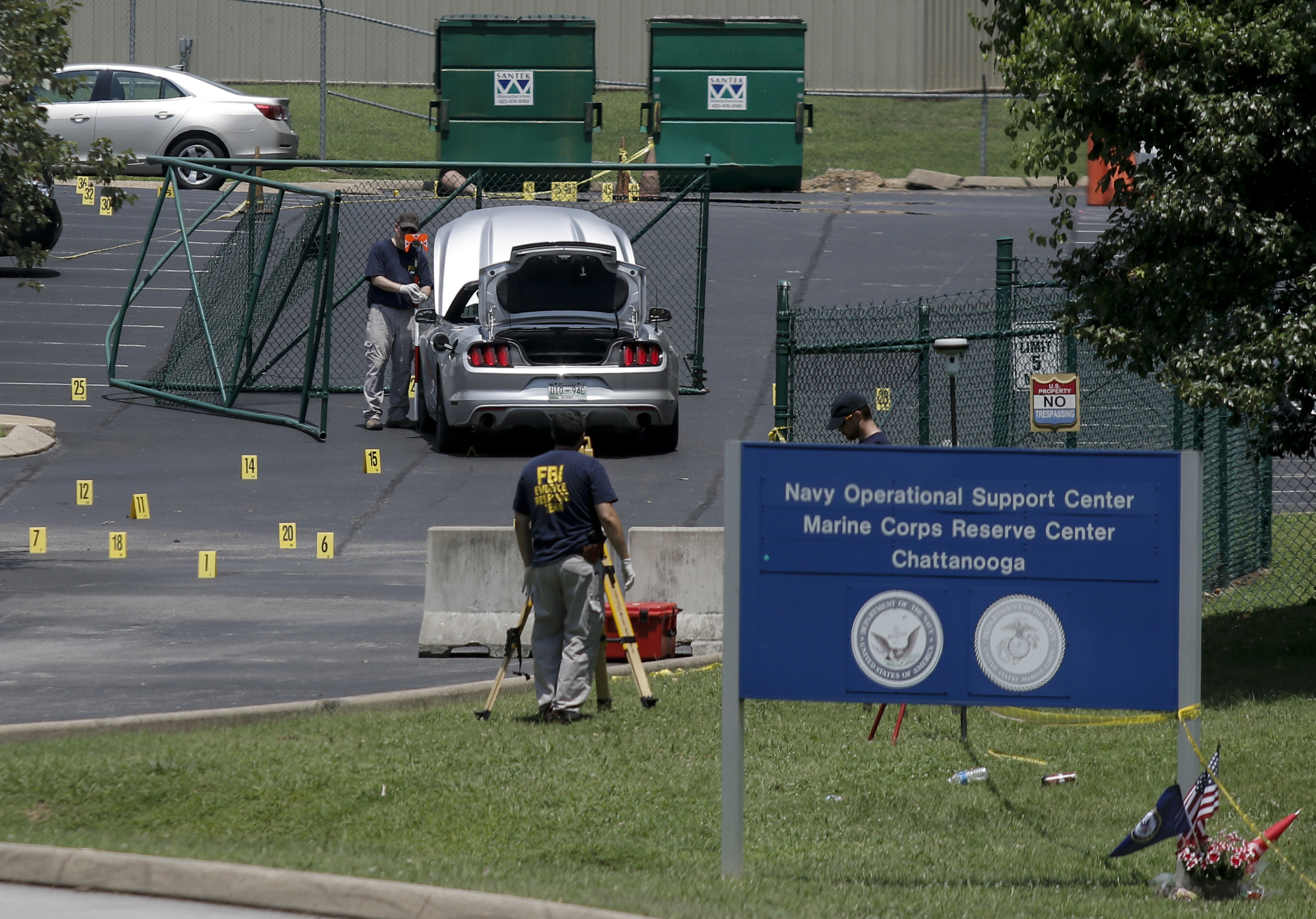 FBI investigators work the scene of the July, 16 shooting at the Naval Operational Support Center on Amnicola Highway on Saturday, July 18, 2015, in Chattanooga, Tenn. U.S. Navy Petty Officer Randall Smith died Saturday from wounds sustained when gunman Mohammad Youssef Abdulazeez shot and killed four U.S. Marines and wounded two others and a Chattanooga police officer at the Naval Operational Support Center shortly after firing into the Armed Forces Career Center on Lee Highway.
FBI investigators work the scene of the July, 16 shooting at the Naval Operational Support Center on Amnicola Highway on Saturday, July 18, 2015, in Chattanooga, Tenn. U.S. Navy Petty Officer Randall Smith died Saturday from wounds sustained when gunman Mohammad Youssef Abdulazeez shot and killed four U.S. Marines and wounded two others and a Chattanooga police officer at the Naval Operational Support Center shortly after firing into the Armed Forces Career Center on Lee Highway.Some people who knew Mohammad Youssef Abdulazeez before he carried out the July 16 terrorist attack in Chattanooga realized he was becoming radicalized but failed to alert authorities, the FBI agent in charge of the investigation said Thursday.
Abdulazeez was radicalized online more than a year before he opened fire on two military sites and killed five U.S. service members, Special Agent in Charge Ed Reinhold said. The 24-year-old Hixson man had watched videos and teachings from a member of al-Qaida online, and had discussed carrying out an attack.
"He had discussed committing jihad; he had not taken any affirmative action toward it," Reinhold said.
Reinhold declined to say where those discussions took place, or with whom. He said the FBI was not aware of the discussions before the attack, and added that Abdulazeez did not espouse his beliefs or intentions online.
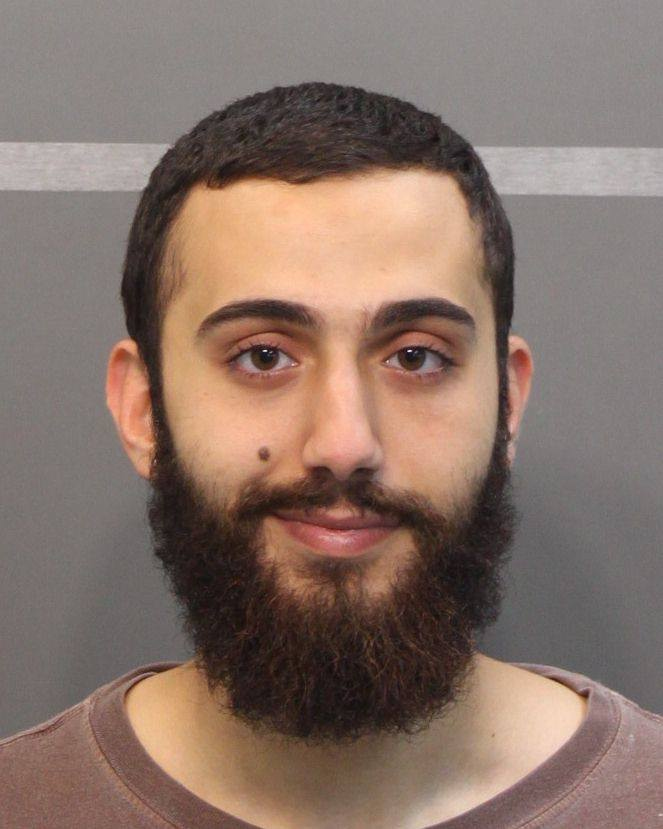 A U.S. official says the gunman in the shootings in Tennessee has been identified as 24-year-old Muhammad Youssef Abdulazeez, according to the Associated Press.
He was believed to have been born in Kuwait, and it was unclear whether he was a U.S. or Kuwaiti citizen. The official was speaking on condition of anonymity to discuss the ongoing, sensitive investigation. It was not immediately clear whether the gunman's first name was spelled Muhammad or Mohammad.
He is from Hixson, Tennessee, which is just a few miles across the river from Chattanooga.
A U.S. official says the gunman in the shootings in Tennessee has been identified as 24-year-old Muhammad Youssef Abdulazeez, according to the Associated Press.
He was believed to have been born in Kuwait, and it was unclear whether he was a U.S. or Kuwaiti citizen. The official was speaking on condition of anonymity to discuss the ongoing, sensitive investigation. It was not immediately clear whether the gunman's first name was spelled Muhammad or Mohammad.
He is from Hixson, Tennessee, which is just a few miles across the river from Chattanooga.Abdulazeez was radicalized before he traveled to Jordan in July 2014, Reinhold said. He described that trip as a "family visit" and declined to say whether the FBI intends to pursue charges against the people who failed to report Abdulazeez's radicalization.
The FBI released new information about the attack ahead of the one-year anniversary this month: Abdulazeez bought his guns legally, planned the attack deliberately, and intended to die. Although Abdulazeez's family released a statement after his death that said their son was depressed, Reinhold said the FBI found no medical evidence of depression.
Abdulazeez was shot at least 10 times during the attack. He used a semi-automatic shotgun, an assault rifle and a handgun - and one of those weapons malfunctioned early on, which may have saved lives.
***
Abdulazeez first opened fire on the military recruiting center on Lee Highway around 10:45 a.m. on July 16.
Leaning out of a rented Mustang convertible, he aimed a semi-automatic shotgun at the storefront and pulled the trigger. The first shot sent the Marines inside running for cover.
Then there was a pause, just a few seconds, before Abdulazeez opened up with rapid fire. The FBI believes the shotgun malfunctioned, forcing Abdulazeez to switch weapons and giving the Marines in the front of the office - who were sitting just a few feet from the shooter - time to escape.
Minutes later, Abdulazeez left the shotgun in his rented Mustang and carried out the second attack on the U.S. Naval and Marine Reserve Center on Amnicola Highway with the assault rifle and handgun.
Photo Gallery
Haunted House
The annual EMOBA Haunted House is busy scaring people for 2 weeks out of the year...
As the shooter approached the building, Navy Lt. Cmdr. Tim White opened fire through his office window with a personal weapon, but Reinhold said Thursday it's unclear whether that gunfire wounded Abdulazeez, who shot back.
"But we know that his actions that day most likely saved lives," Reinhold said. "By the simple fact that one, it slowed the shooter down. And two, the shots that he fired warned others that there was something going on."
Abdulazeez was killed by police and had 10 obvious gunshot wounds. He also had additional wounds that could have been caused by bullets or by something else, like broken glass.
He bought his guns several months before the attack, Reinhold said, from sellers both online and in person. He bought from both individuals and gun shops.
Abdulazeez also visited local firing ranges to use the weapons. It's not clear whether he was shooting for sport or in preparation for an attack.
"We know he shot," Reinhold said. "Why he was shooting, only he knows. But he had practice with the weapons prior to."
The attack was deliberately planned, but Reinhold declined to say when Abdulazeez took the first concrete step toward the shooting.
"I know he wanted to commit jihad and commit jihad here in the United States, but I don't think the specific target was necessarily picked out too far in advance," he said. "There was some planning involved, but not years-worth."
Abdulazeez did test drive a convertible five days before July 16, a move Reinhold said may have been a "practice run."
He declined to give any details about what Abdulazeez did in the days leading up to the attack, and also declined to say whether the FBI has evidence that Abdulazeez regularly used drugs.
The 24-year-old was arrested on April 20, 2015, and charged with DUI after Chattanooga police saw white powder on his nose.
***
The FBI again declined to release transcripts or audio from the 911 calls made on July 16, and on Thursday also refused to release dashcam video from the first police cars to respond. The Times Free Press filed an open records request for those and other documents in July 2015, which was denied.
The year-long investigation is still active and ongoing, Reinhold said, and such information could still be evidentiary if investigators are able to tie other people to the attack.
"We have to be much more cautious with the information we release, in the event that we're able to show others were involved, we don't want that information released because it could create problems when it comes to potential prosecutions," he said. "I'm not saying we're looking at any prosecutions, I'm just saying we have to be careful with any evidence we collect in the event that it does lead to somebody or something else."
He declined to say whether the FBI has anyone in Chattanooga under surveillance in connection to the attack, and would not comment on whether Abdulazeez's family members are considered suspects.
But he did say there does not appear to be any particular event in Abdulazeez's life that started him down a path of radicalization. Raised from infancy in Chattanooga, Abdulazeez attended Red Bank High School, interned with the Tennessee Valley Authority and graduated from the University of Tennessee at Chattanooga.
In the years before July 16, he appeared to many as a normal local kid. Like other so-called "homegrown violent extremists," Abdulazeez was radicalized online, which can make it difficult for the FBI to detect.
"We have freedom of speech, which is a cornerstone in this country," Reinhold said. "Unlike what you see on TV, the FBI and law enforcement don't have the ability to watch everybody. Do we take steps to monitor jihadist websites? Yes. Can we watch everybody who logs on to them? No. Do we monitor as best we can the traffic that goes out in the public domain? Sure.
"If someone is talking radical, then that is someone we'll want to investigate. But, unless they're out there espousing it online, which he was not, there is really very little we can do. We believe other people were aware he was getting radicalized. They didn't report it. Which is the biggest problem that we face."
Friends, family and acquaintances are a critical part of preventing terrorist attacks like July 16, he said, and it's important for anyone who suspects something is wrong to alert the authorities.
Bassam Issa, president of the Islamic Society of Greater Chattanooga, said he and other Muslim community members do not hesitate to report suspicious behavior to the FBI.
"If we detect anything at all we call the FBI about it immediately," he said. "That's the policy. We want to keep Chattanooga safe because Chattanooga is our city, and our people, and we're part of it."
He added that Abdulazeez was not heavily involved with the mosque or its community in Chattanooga.
"It's not a matter of why we could not see it," he said. "It's just he was not there to see."
Contact staff writer Shelly Bradbury at 423-757-6525 or sbradbury@timesfreepress.com with tips or story ideas. Follow @ShellyBradbury.
